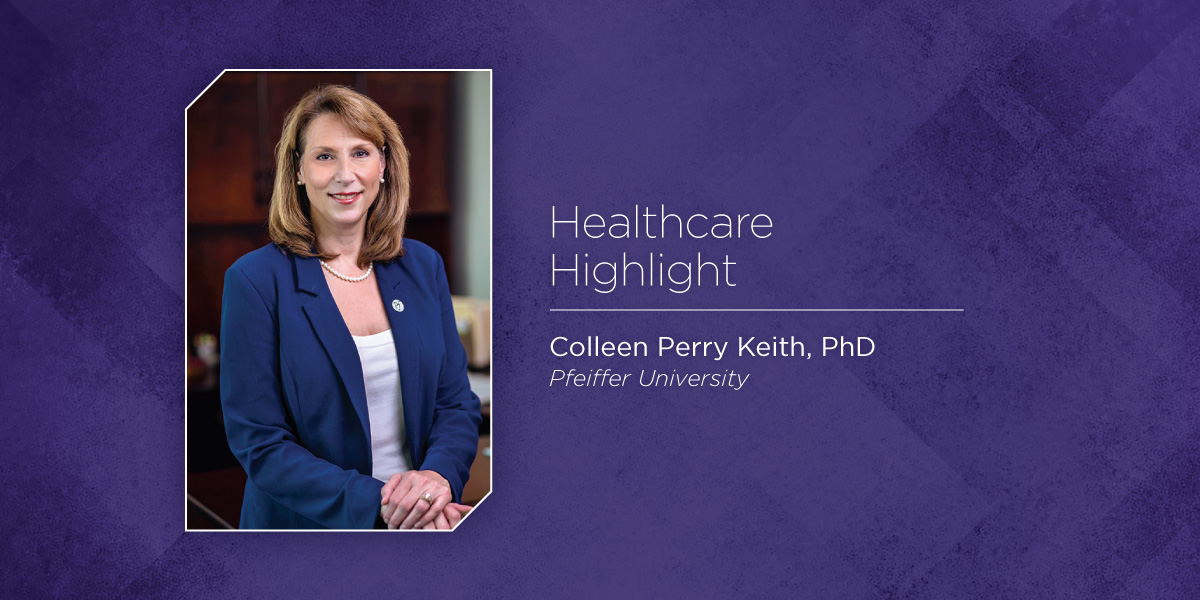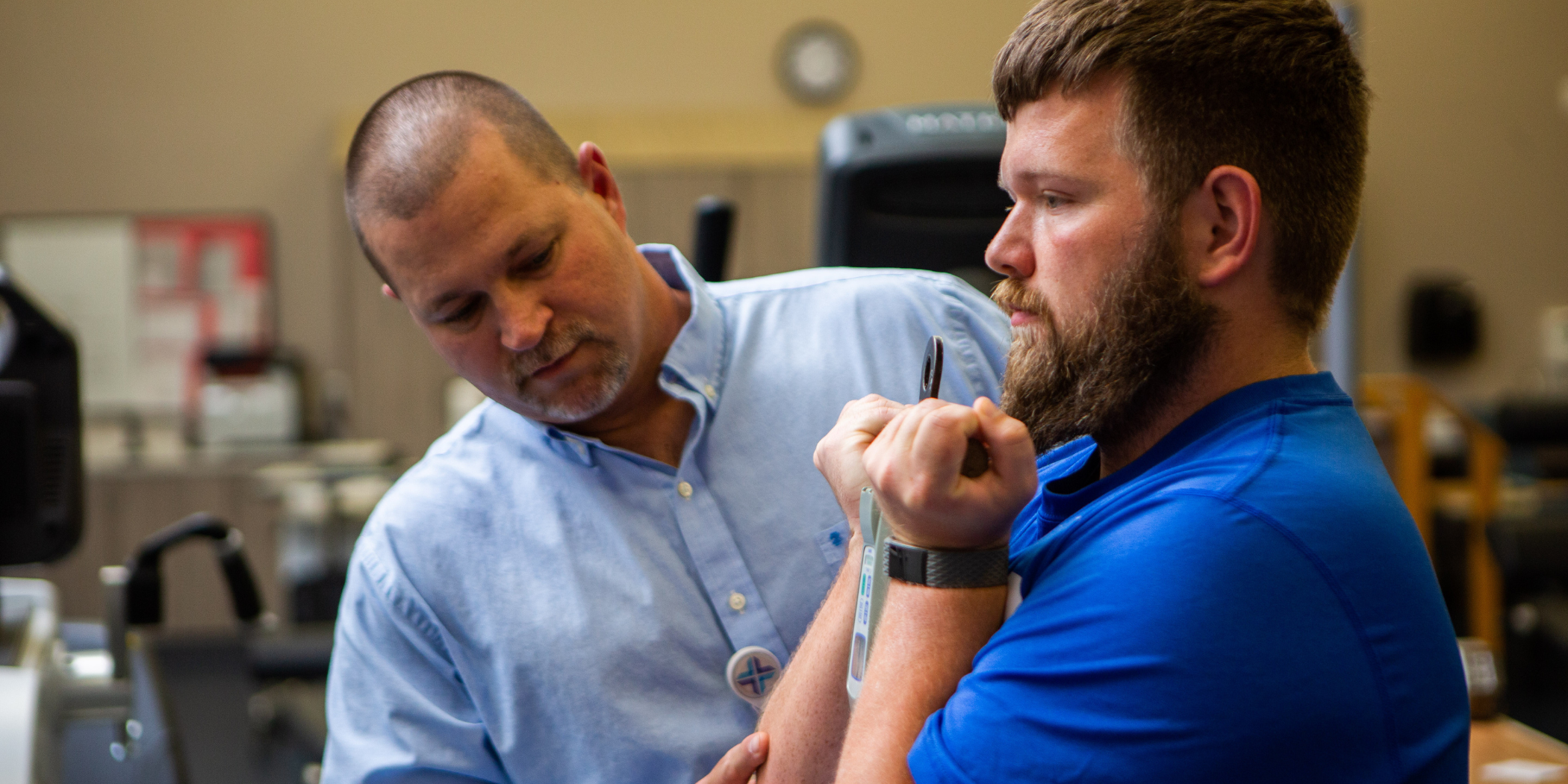
Balancing breast cancer treatment and a busy career
Generally, the things that people first notice about me are that I am tall, friendly, upbeat and full of energy. I am a person of action. I walk, talk and think fast. It takes a lot to slow me down. Cancer tried to, and maybe won a little bit, but I found ways to win that battle.
On June 16, 2010, I was diagnosed at Gibbs Cancer Center & Research Institute with invasive ductal carcinoma, which after all of the pathology reports came back was further diagnosed as Stage 1 breast cancer, with no lymph node involvement.
My first thought was, “Oh no.” I cried, especially when I told my son, my only child and the light of my life. But I didn't cry long. Remember: I am a person of action. From almost the moment I learned my diagnosis, I started planning and making decisions. Now that cancer was found, I wanted it out as soon as possible. Eight days later it was. Then I had to move onto the rest of treatment, and that's when life began to get more complicated.
As the president of a college, I have one of those jobs that sometimes doesn't end. There are times when the days morph into nights and back into mornings again. Through it all you envision yourself running on a treadmill. I knew I had to figure out a way to balance my work with treatment so that I could be the president that the college needed while beating cancer at the same time.
Unfortunately, there are no self-help guides that provide the magic answer as to how I could do that. Even if there were, I had learned enough in the early days of my cancer diagnosis to know that no two people have the same cancer or treatment, nor do they respond to treatment in the same way. So there is no one way to manage treatment and career. I did, however, find a few things that helped me to balance the two:
- For me, work was as important as treatment. I am not a workaholic by any means, but I am very committed to the work of the college as I truly believe that our work transforms people. Serving in the role that I do is my ministry. So working during my treatment was important for me and kept me focused on something positive. As a friend put it regarding her own treatment, “working keeps my focus off of myself and really forces me to not obsess about my illness.” All told, I missed a total of 10 and a half days of work because of cancer treatments and surgeries. Not everyone can work through treatment, however, so make the decision based upon what is important to you and what you know you can and cannot handle. Remember, no two people are alike.
- Let the people around you support and help you: Colleagues at work, the husband who can't cook, the neighbor across the street, the person who calls because she has heard about your diagnosis wants to help in some way. Let them help if there is something you genuinely need help with. For me, the soup that a neighbor brought was perfect for the night when I didn't want to think about making dinner. The meetings were important that my colleagues covered for me on those days when I wasn't feeling up to it or had to run out to yet another doctor's appointment. Helping me keep my schedule “sane” was terrific. The helpful hints or information that other cancer patients used or found and wanted to share were the greatest help.
- Get and/or stay well organized. I kept my day planner handy and made notes for everything. I bought my wigs before my hair fell out from my chemotherapy treatments and then got my head shaved when the shedding got bad. I shopped for groceries before each chemotherapy treatment so that I had things on hand I knew I could eat. I made sure the calendar in my briefcase matched the one in the office. A cancer diagnosis and its treatment throw your routine off as you try to manage the many doctors' appointments and side effects of treatment. If you are not well organized, you can easily forget appointments or some other activity that is important for you. I was able to plan my chemotherapy infusions for Friday afternoons when my office is closed and then my worst side-effect day, which was day three for me on Sundays.
- Rest and exercise. I spent time nearly every day on my elliptical machine or took walks. It made me feel strong and alive. I went to bed at 6:30 p.m. some nights (and always by 10). That gave me the rest that I needed. You will need to decide what works for you. It would have been easy to retreat into doing nothing but I suspect that would have made me less able to balance work and treatment.
- Set up an e-mail distribution list or take advantage of websites like www.caringbridge.org to keep people informed. Everyone wants to know how you are doing and, frankly, it takes a lot of time and energy to keep people informed if you don't have an efficient way to do so. As much as you want to, it is very difficult to return 25 phone calls and email messages when you feel like horrible. My Caring Bridge site kept everyone who wanted to be informed and gave friends and family a way to let me know they were thinking of me. I updated my journal there regularly and the best part was that I got to read supportive and touching messages in return.
- Life is 10% what happens to you and 90% how you react to it. In other words, attitude is everything. When you are faced with a cancer diagnosis, it can be very easy to get depressed and think negatively. When you are dealing with cancer, most things are out of your control even though it's YOUR life and YOUR body and YOUR health. The one thing you CAN CONTROL is your attitude. It's a choice – you choose how you respond. Why not choose hope and optimism? It sure seems like a better way to get through the day than the alternative attitude.
I know that my situation is not what many diagnosed with breast cancer have. I have a flexible position that offers health insurance. I work with people who pick up the pieces that I might miss from time to time. I could balance work and cancer treatment in ways that an hourly employee may not be able. I also know that my response to treatment and diagnosis is not the same for every patient. The key thing to remember is that you can find a balance that works for you. No two cancers are alike. No two responses to cancer are alike. Know your cancer, your treatment and what works for you and do what you have to do to successfully complete treatment and get back to wellness.
Dr. Keith is now six years cancer free. Formerly the president of Spartanburg Methodist College, she now is the president of Pfeiffer University in North Carolina.











